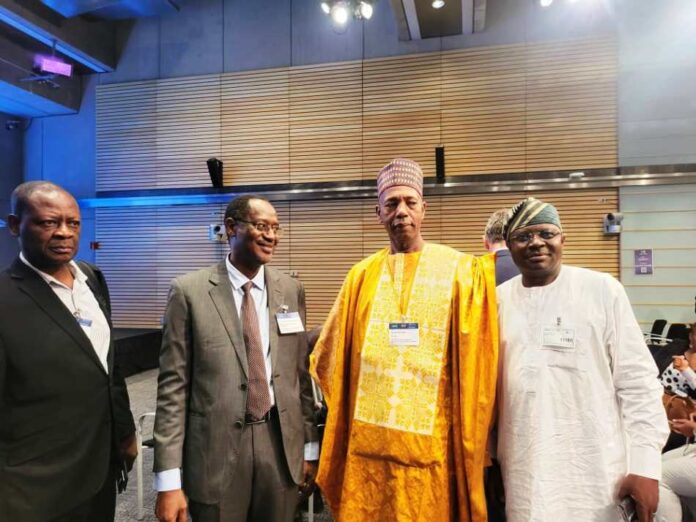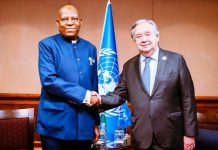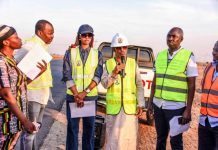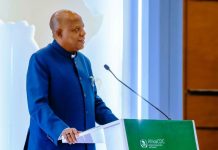
At the World Bank Land Conference held in Washington, DC, from 13th to 17th May 2024, the Honorable Minister of Housing and Urban Development of Nigeria, Arc. Ahmed Musa Dangiwa urged African governments to prioritize inclusive urban planning and fair land management strategies as part of measures to combat the effects of climate change, urbanization, and conflicts.
Speaking at the high-level Ministerial Africa Regional Workshop on the future of land administration in addressing urbanization, climate change, conflicts, and food security, Dangiwa stated that the way Africa countries manage land in the future needs to consider everything from how cities are growing, to climate change, conflicts and ensuring food sustainability.
He detailed Nigeria’s ongoing and future land reform initiatives.
“In Nigeria, we have embarked on a comprehensive land reforms programme that aims to make access to land easy, accessible, and equitable,” Dangiwa said.
“A couple of months ago, we set up a Land Reforms Task Team with the mandate to produce a comprehensive blueprint for these reforms. The team comprises sector experts, traditional institutions, and state governments who are custodians of the land.”
A crucial part of this initiative is the review of the Land Use Act of 1978, the governing law for land administration in Nigeria. The Act is obsolete, and we aim to review it. As part of the reform process, we also want to set up a National Land Commission to operationalize the law after it has been reviewed.”
He emphasized that these efforts are essential for the new government as they prepare the blueprint for implementation.
To address the broader challenges, Arc. Dangiwa highlighted the necessity of a comprehensive and holistic approach to land administration. He stated that inclusive urban planning and fair land management strategies must be prioritized. This involves ensuring efficient land allocation and titling systems, as well as integrating informal settlements into formal urban frameworks to provide access to basic services and infrastructure for all citizens.
Furthermore, with climate change causing problems like desertification and flooding, the Hon. Minister stressed the need to invest more in sustainable land practices and resilient infrastructure. This includes planting more trees, adhering to green building standards, and incorporating nature-based solutions in city planning to reduce environmental risks.
Regarding conflict resolution, Dangiwa pointed out that conflicts over land ownership are common in Nigeria and other African countries due to weak legal frameworks. He called for better land governance and fair dispute resolution mechanisms to promote social harmony and prevent violent clashes.
In terms of food security, he highlighted the importance of optimizing land utilization for agricultural purposes amidst population growth and environmental pressures. This involves supporting smallholder farmers with secure land tenure, facilitating access to credit and inputs, and promoting sustainable agricultural practices to enhance productivity while safeguarding natural resources.
The Hon. Minister stressed the importance of a multifaceted approach to land management. He stated, “The way we manage land in the future needs to consider everything from urban growth to climate change, conflicts, and food security. We can achieve this by including everyone in decision-making, being mindful of the environment, and ensuring fairness. This approach will help us tackle these challenges and build a stronger, more prosperous future for all.”
The Africa Regional Workshop was chaired by Iain Shuker (Regional Director for Sustainable Development in Eastern and Southern Africa, World Bank) on the closing day of the World Bank Land Conference, Friday 17th May 2022.
Other speakers at the panel discussion included the Eunice Andrade Silva, Minister, of Housing Cape Verde, Ethiopia: Fenta Dejene, State Minister for Urban Development and Construction, Malawi: Deus Gumba, Minister for Lands, Housing, and Urban Development, Sierra Leone: Turad Senesie, Minister for Lands, Housing, and Country Planning and Uganda: Judith Nabakooba, Minister for Lands, Housing and Urban Development.
Mark Chieshe
Special Assistant Media and Strategy to Hon. Minister





